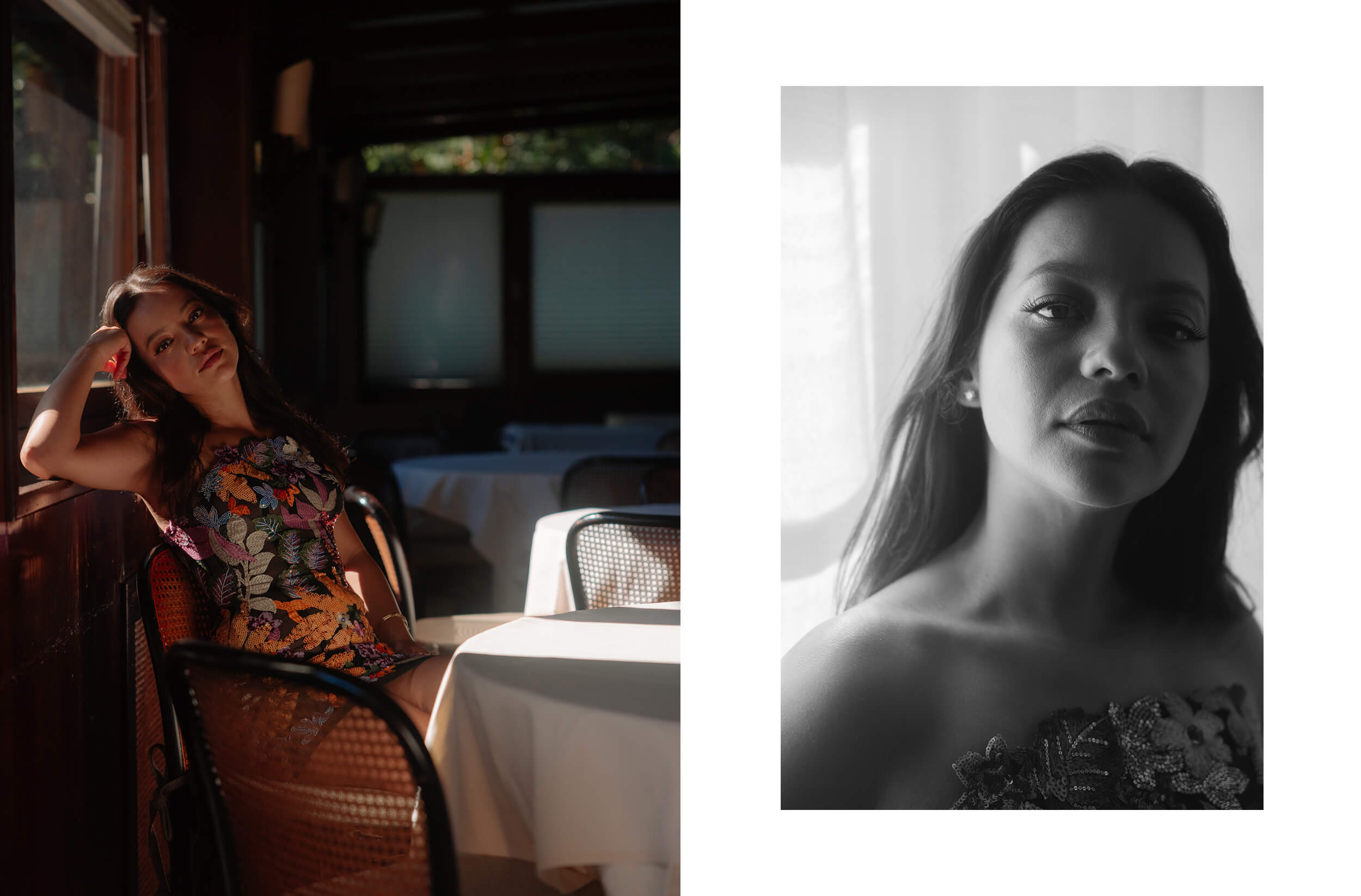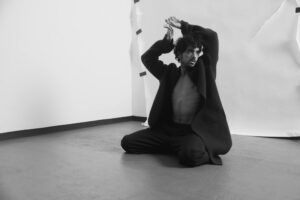When you meet Natalia Reyes, her warmth and intelligence strike you immediately – the kind of quiet strength that defines both her presence and her performances. Natalia has always gravitated toward stories that feel urgent, human, and painfully real. With “It Would Be Night in Caracas”, adapted from Karina Sainz Borgo’s acclaimed novel, she returns to the heart of Latin America – to a story that feels both deeply personal and tragically universal.
The film follows Adelaida, a young woman forced to flee her collapsing homeland as violence and repression close in. Through Natalia’s eyes, we witness the loss of identity, the fracture of belonging, and the stubborn spark of hope that refuses to die even in the darkest times.
In our chat, Natalia opens up about the long and emotional journey behind the film’s 12-year realization, the challenge of embodying a Venezuelan story as a Colombian actress, and the universal themes of grief, resilience, and rebirth that define both Adelaida’s path and our collective human experience.
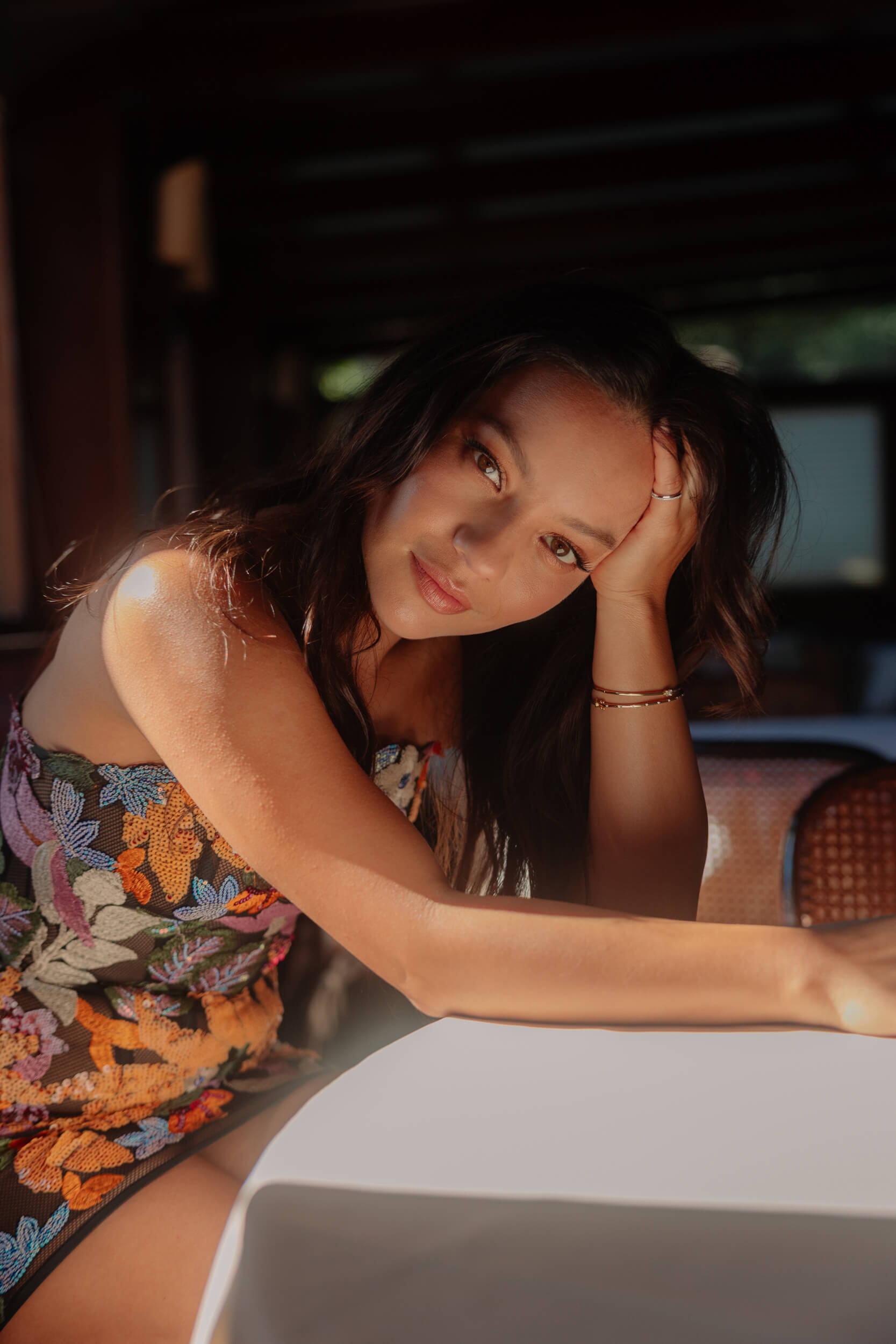
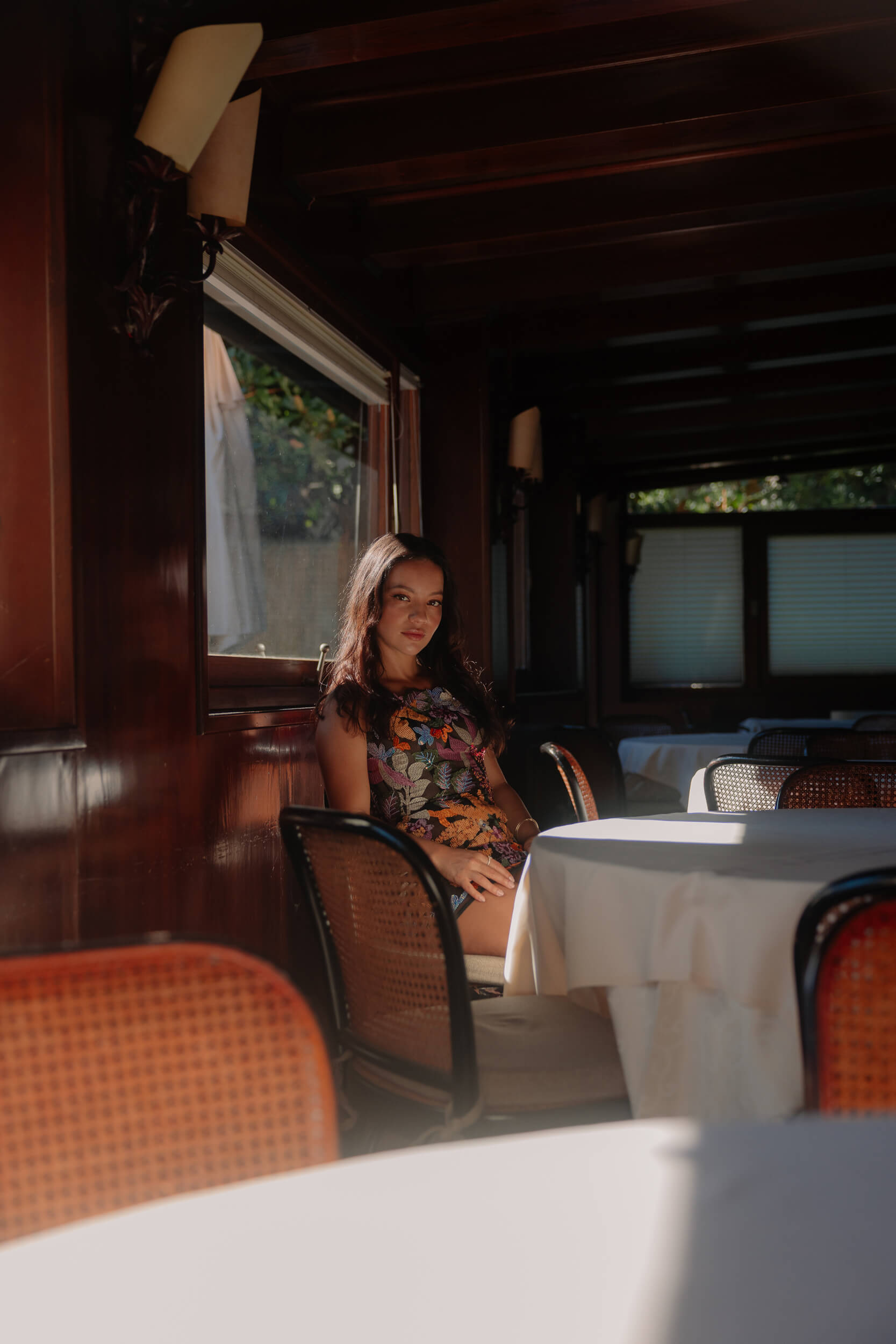
How did you meet with this project? What was the thing that made you say, “Yes, I want to do it”?
This project took a very long time to be realized – 12 years, actually. Jill [Littman], who’s one of the producers, told me about the story when we were in LA. When I heard from her about the book and everything, I was so impressed and super excited to be part of the film. Of course, it takes time to find the money, the location, the rest of the cast, so eventually we filmed only last year, after a long time spent trying to make it happen.
For me, it was an immediate “yes”. I’m from Colombia, but Venezuela and Colombia are twin countries – our stories are so similar, and half of my family went to Venezuela and they’re coming back now, so I really felt this story was so important to tell – not only what happened in Venezuela in 2017, but also what keeps happening today, which looks like is going to be happening again and again. I always say it’s not about left or right, it’s about regimes, totalitarian governments and systems in general that oppress people.
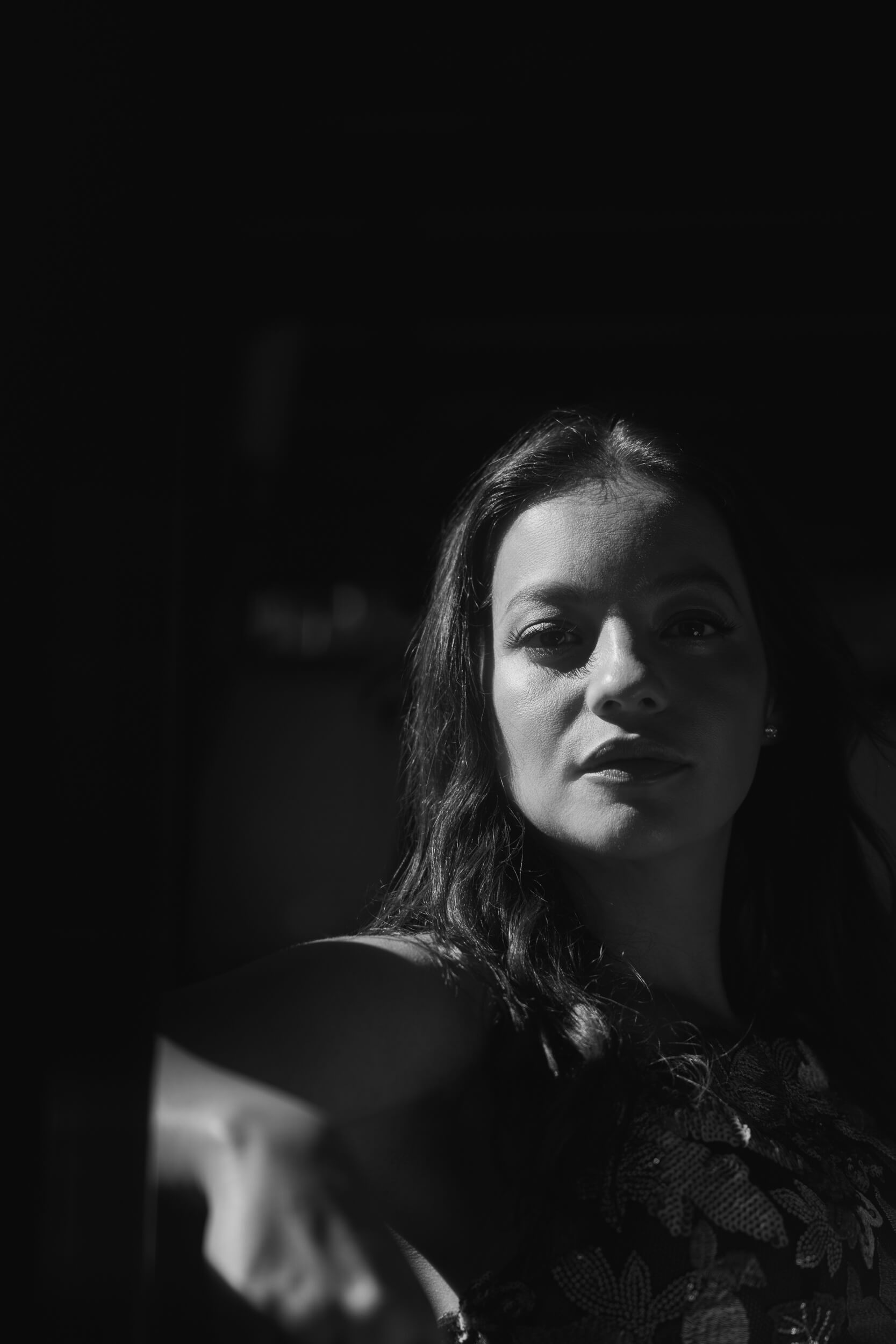
“I always say it’s not about left or right, it’s about regimes, totalitarian governments and systems in general that oppress people.”
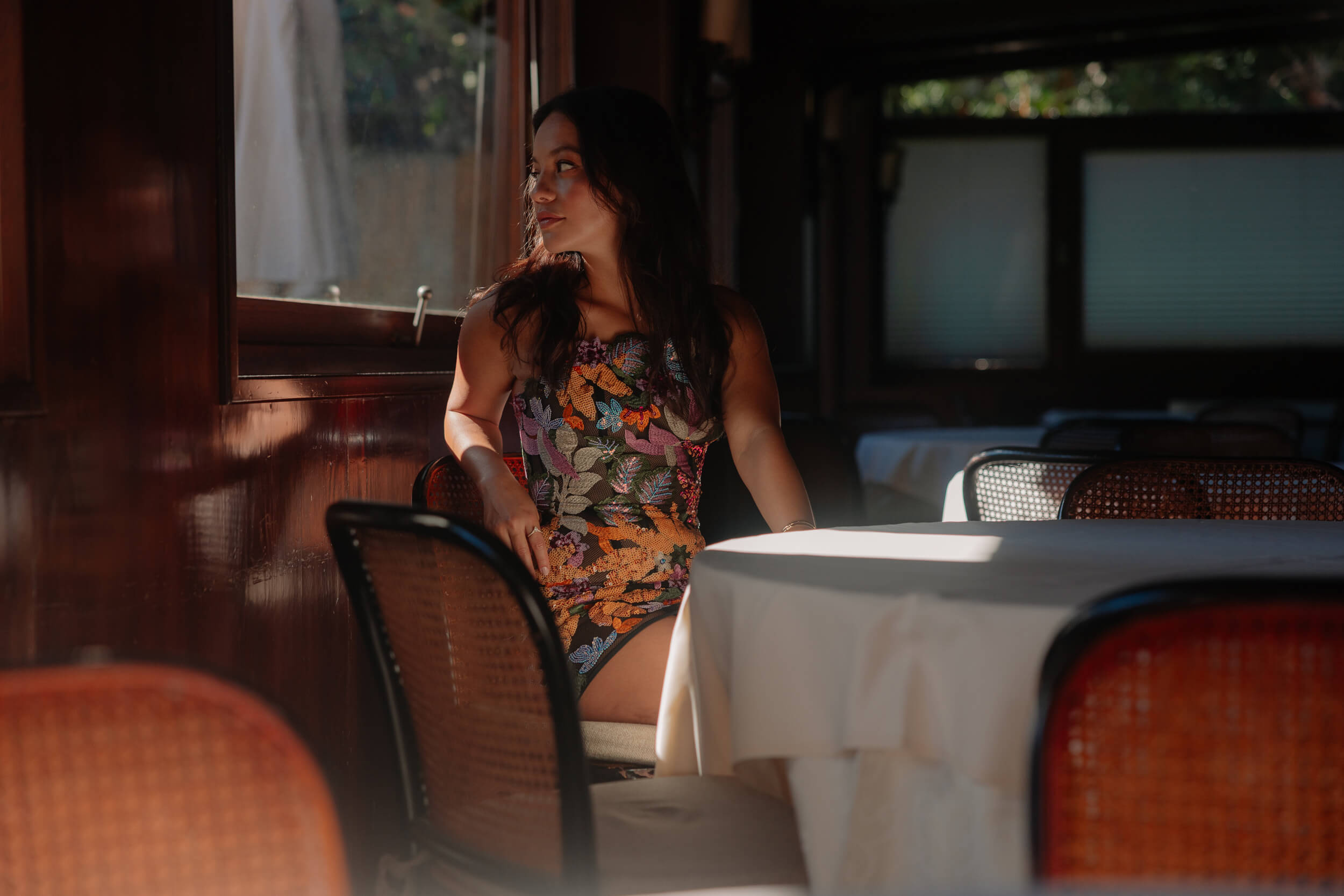
We interviewed Edgar Ramirez, and I remember him saying that in the film you never hear names, you just see the system, and everyone is under the thumb of someone else. For you, as an actor, what scared you the most or what was the most challenging part in working on this? But also, what was the thing that you wanted to tell more than anything?
The biggest challenge was that I was Colombian and not from Venezuela. I think it was such an important story to tell about the whole country that it was a big responsibility for me to play it respectfully and honor what has happened there. I really wanted to do it well so that they could feel well-represented.
The accent is a little bit different from mine, so it was challenging to reproduce it well. Other than that, I focused on how to not play the victim, and humanize this story, which is not about good and bad – under those circumstances, we can all be the bad ones, the oppressors. My character, under those circumstances, is also becoming a monster, as someone who needs to survive and escape, and face loss.
This movie is about how you escape from a situation that you’re living, how human beings adapt to any situation, and how the victims can also become the monsters.
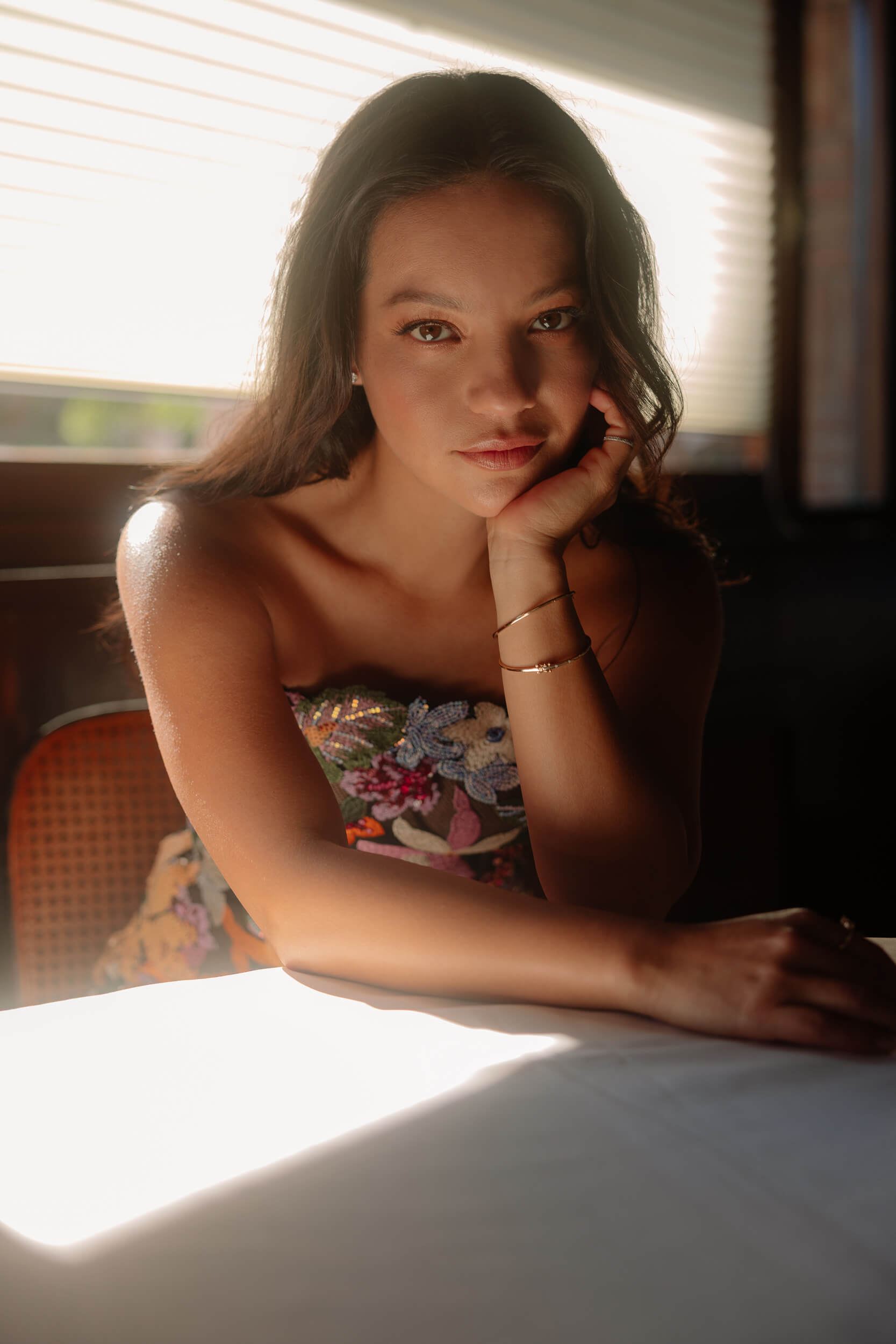
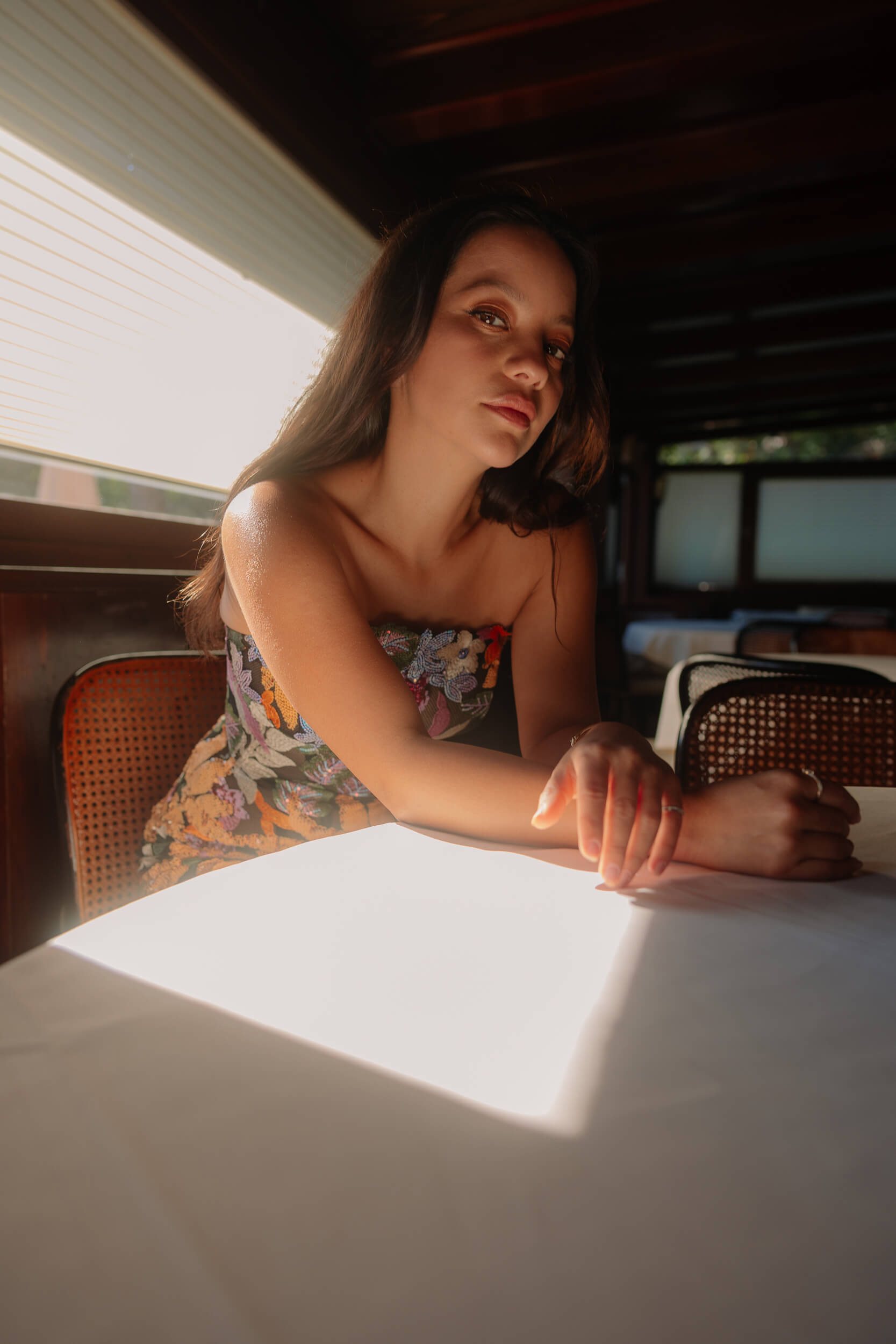
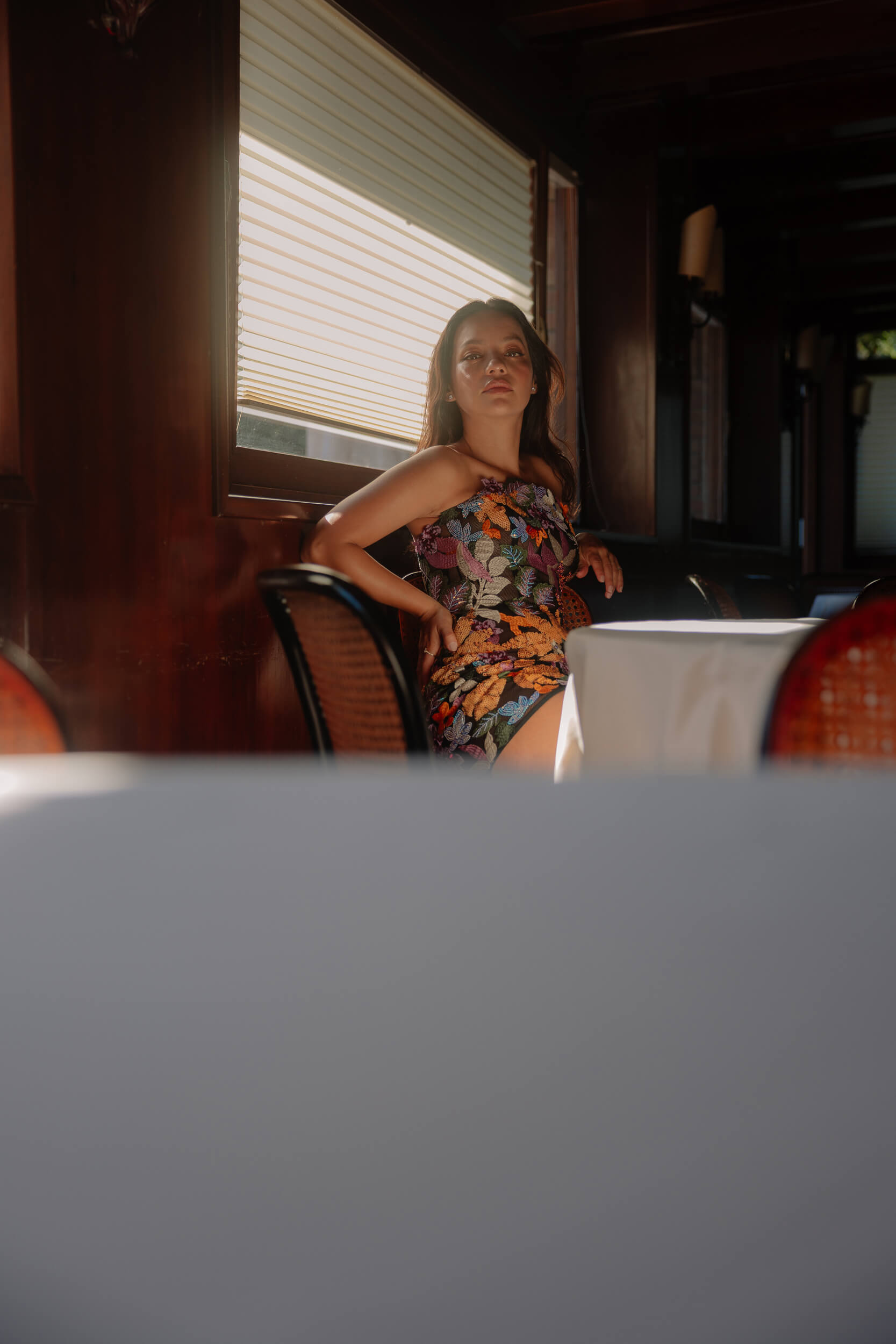
Being stripped of your identity fees like the common thread for everyone involved in the story. Whether it is literally, morally, ethically and physically. As a Southern American and actor yourself, what gives you strength to hold on to your identity, as a person, as a culture, as a whole society?
Yes, this movie is about loss and identity, and what makes you who you are: your country, your mother, your friends, your apartment, the place you know. Adelaida has to get rid of everything, she needs to escape, leave her country because it is in a very difficult situation, and her mother is dead, and she doesn’t have a place in the world. So, she’s also a sad girl, sad about the right to exist, to be who you are where you were born and where you want to be, and you can’t. For us Latin Americans, identity is something really important, as well as family, and the world as we know it, and that was one of the reasons why I wanted to make this movie.
For me, apart from Adelaida’s character, it’s funny that the movies that I have taken to more places in the world, in many Festivals worldwide, tell “smaller” stories, are independent, more authentic and real for us, even more painful sometimes, and closer to our identities – like this film that is in Spanish and it is not an American blockbuster, for example. I think that when you tell the stories that are relevant for you and for your community, it’s crazy our they are more universal. So, being that local and specific makes a story more human and universal.
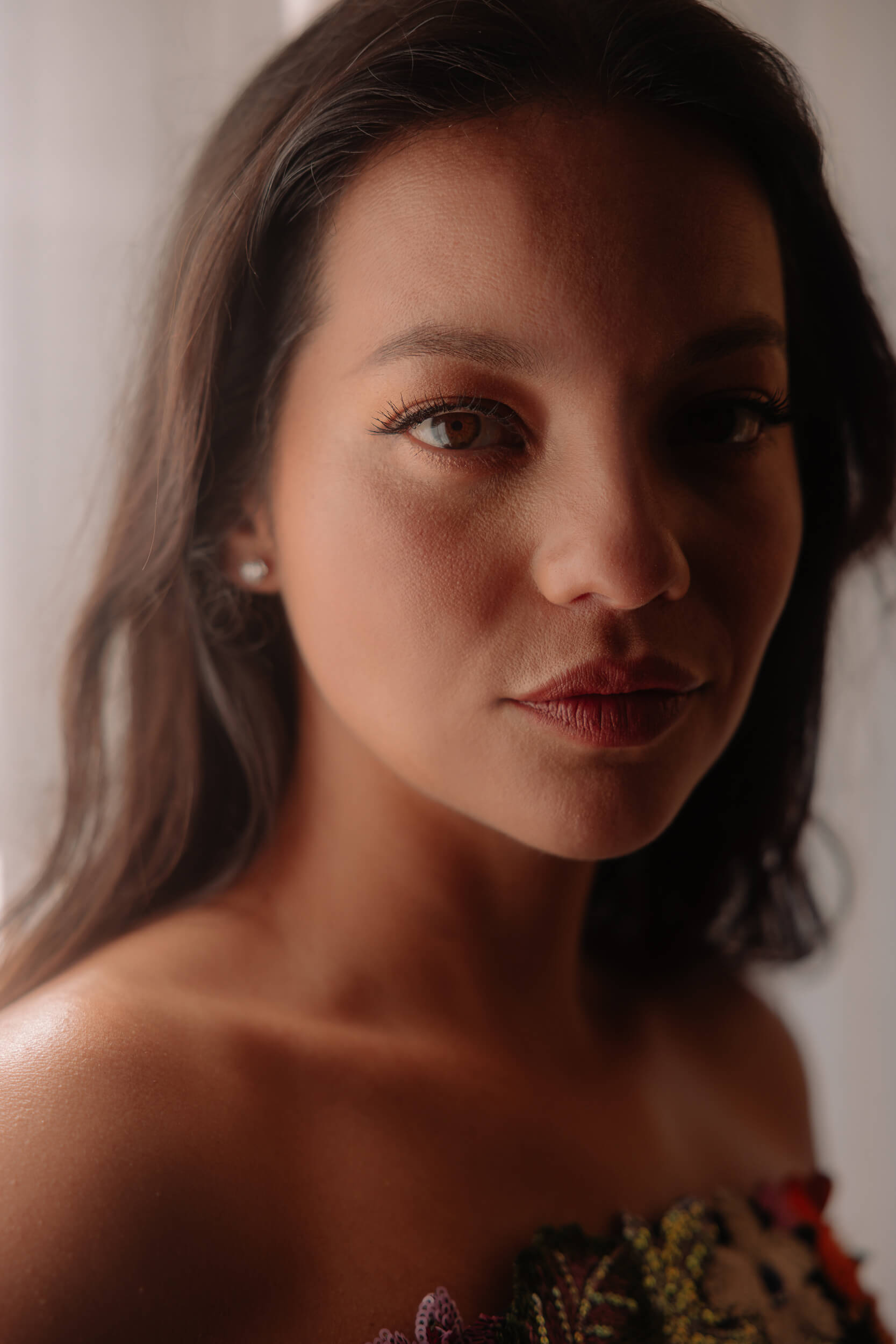
“I think that when you tell the stories that are relevant for you and for your community, it’s crazy our they are more universal.”
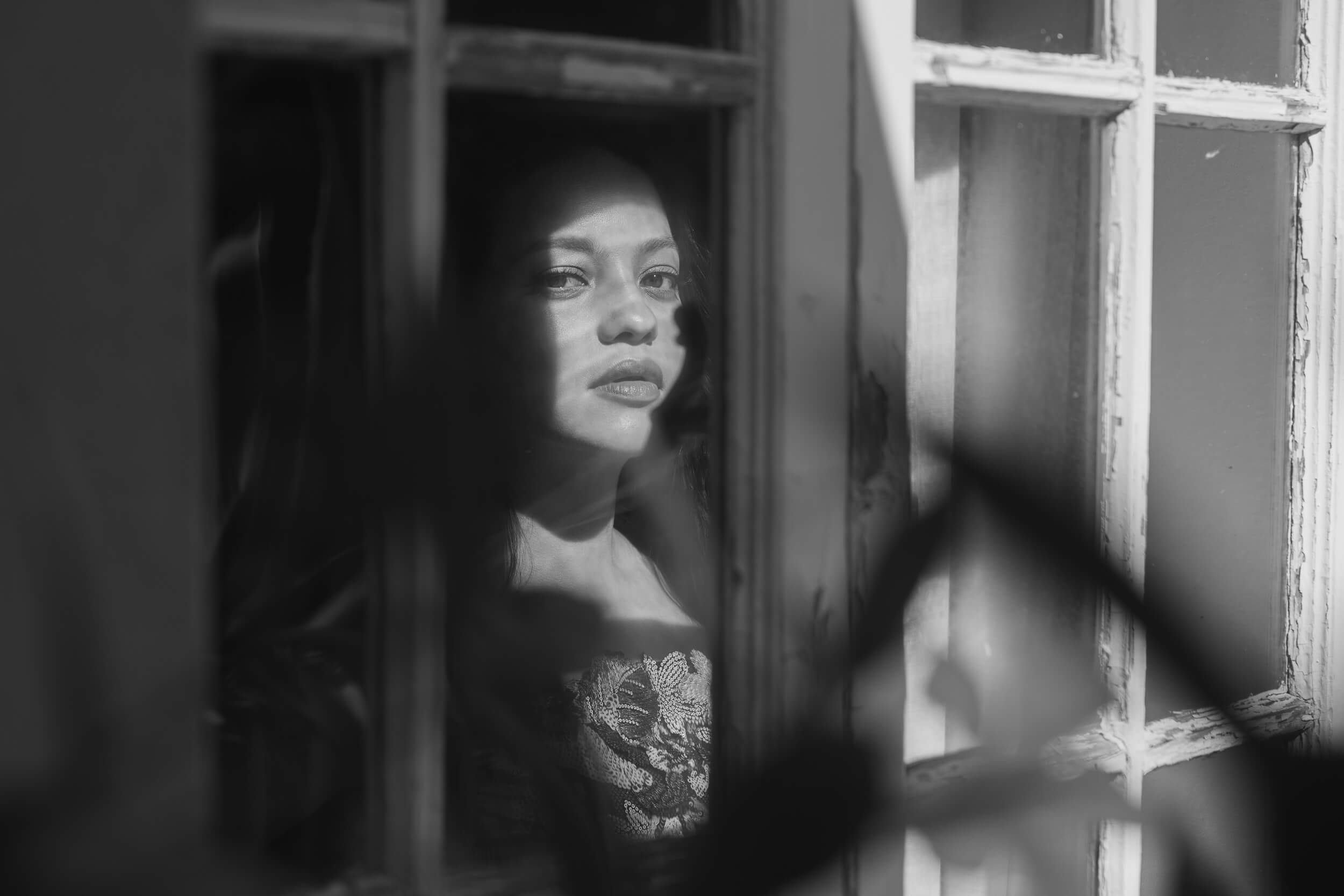
By the way, I’ve never felt more welcome in my life than when I moved to Brazil and lived in South America for six months. I know what you mean when you say that everyone is about family there, I felt it so much. It’s kind of similar to Italian culture, I guess, we’re really strong when it comes to family. But back to the movie, it starts with the funeral of Adelaida’s mother. One thing you immediately understand is that even grief has no space to be lived in their lives, even their grief is something that has been taken from them. What was it like to interpret those scenes where you understand that there is no dignity left? Even in death?
It’s so sad, but again, so universal, how, for example, Covid, or Adelaida’s moment in the middle of the protest in Venezuela, what’s happening today in Gaza and the world we’re living in right now, doesn’t really allow us to exist as humans. Grieving is an essential part of being human. Losing your mother may be the worst and most painful part of human experience, and not being able to grieve or cry, because you need to find a place to stay, escape your country and find a passport… The physical feeling I have and decided to have while filming was that Adelaida has a knife in the middle of her heart, so her heart’s broken, but she’s still alive and she needs to survive. You need to grief but there’s no space for that, and no time, so you just have to keep going even though you’re broken – this is the situation in the film.
Adelaida is trying to hold it together, she’s trying to do what she has to do, but she’s broken, lost, sad, she’s losing everything she knows; I think the rest of the world can resonate with that – you have to keep going even if you’re broken.
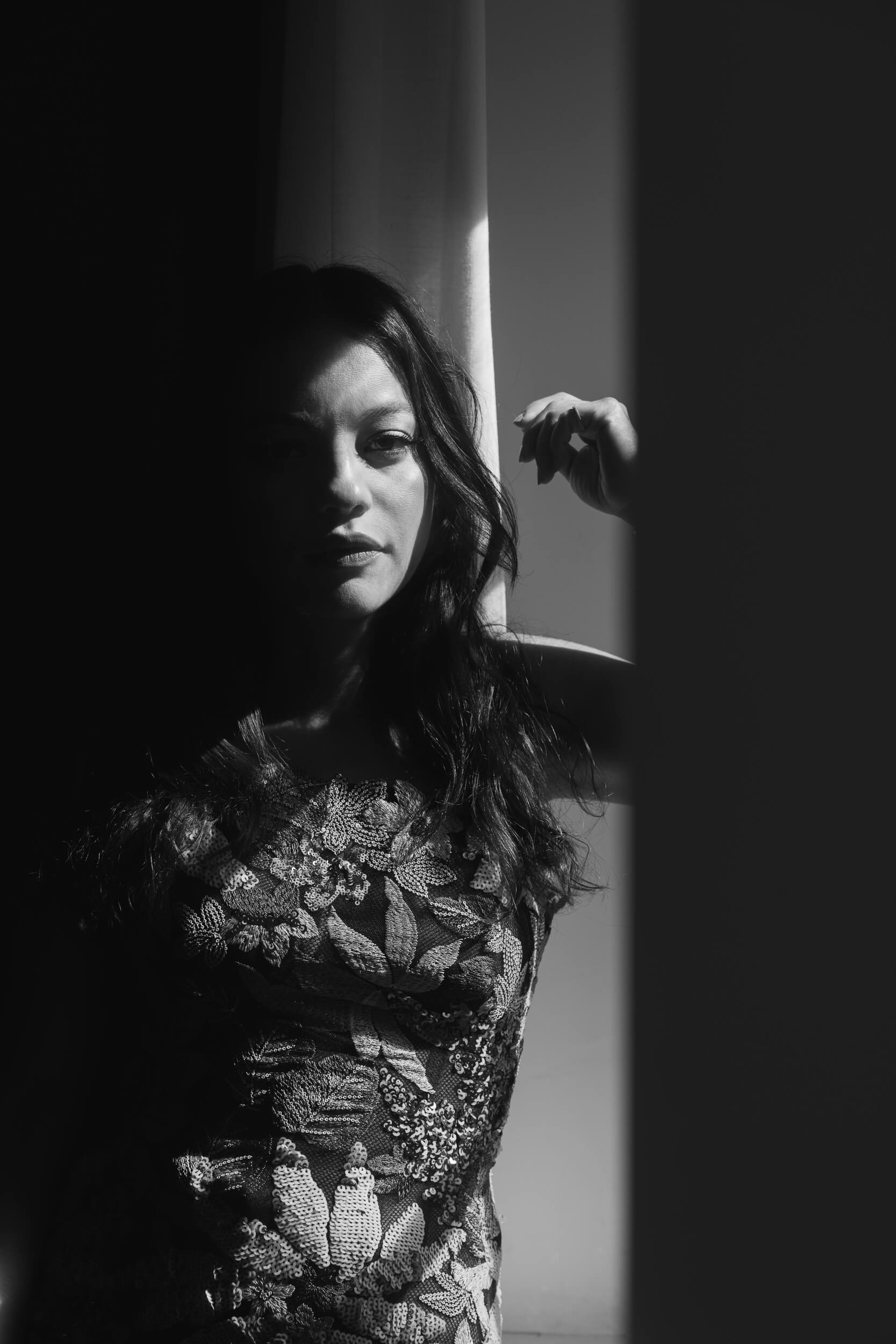
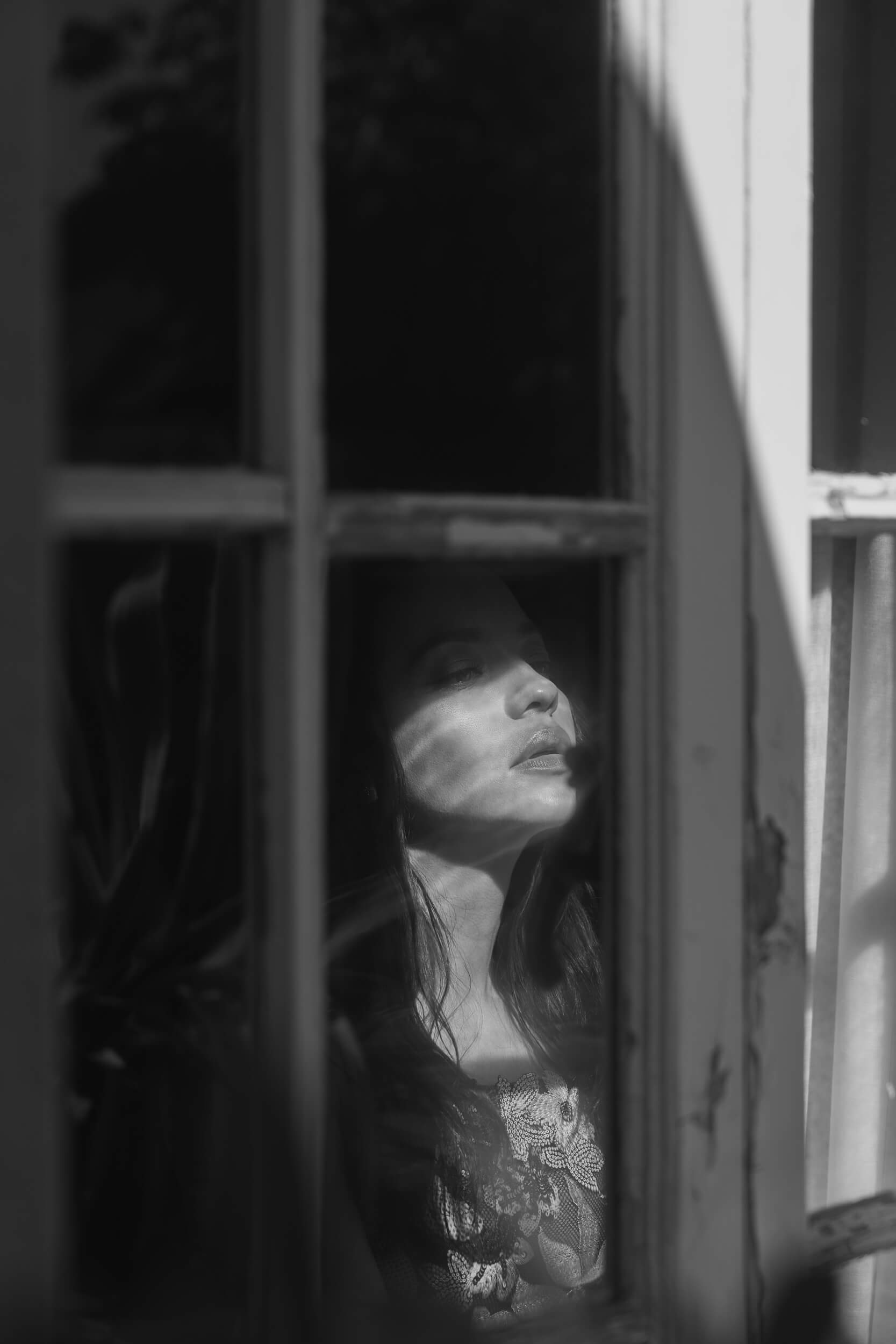
We also talked about this with Edgar: one thing that I really found so interesting is the use of the noise, it’s crazy that the only thing that you hear in the whole film is the sound of shootings, people shouting and in general all the noise of violence. Was it for you like another character? How did you work with that?
Actually, that was one of the surprises for me when I saw the movie because it is a character, I totally agree, it is audiovisual art. Audio comes before visual, so sound is really important in movies. We are so visual now, so we’re more related to images. The directors, I think, knew what they were going to do, but we were in Mexico City in the studio, shooting the scenes we had to do, trying to feel the whole context of protests outside, although we were not hearing any of that and we were not aware of that by the time they were shooting, but I think it is important what she hears. As you said, we didn’t want to make the regime the protagonist, we didn’t want it to be the face of the movie, in fact you hardly see a violent scene. You see painful images, but it is not about that – you can hear it though, how bad it is outside, the music of the women in the opposite apartment, which is kind of chasing Adelaida and trying to make her feel that she’s even more out of her comfort zone.
So, I think sound is really important in this film, they did a really good job and that’s months of work for the people there to make it not “too much noise”, to keep everything of that inner space that Adelaida feels when surrounded by that situation.
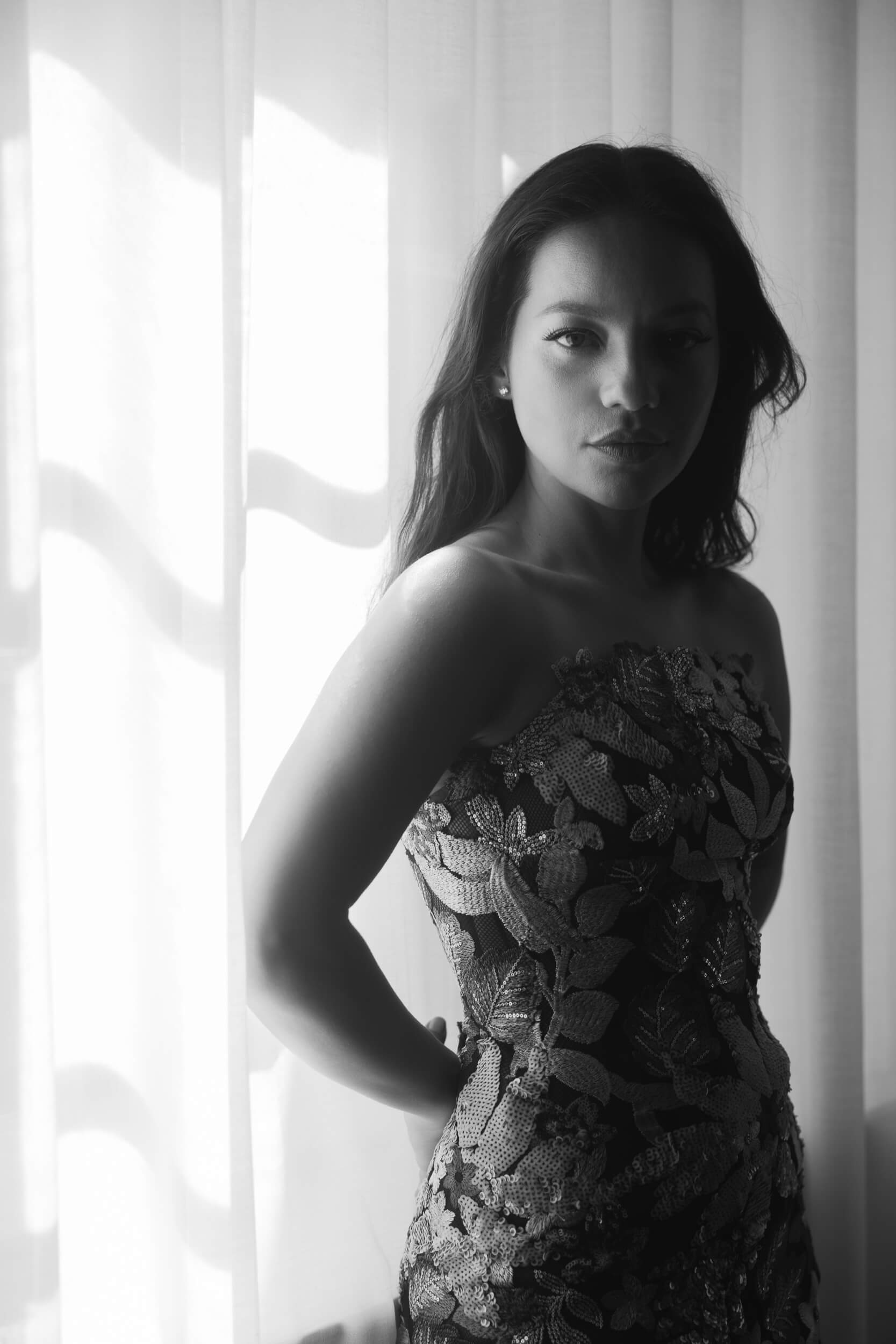
“You see painful images, but it is not about that – you can hear it though, how bad it is outside…”
You don’t see much of the violence, but you imagine what’s going on through your character’s movement, expressions. This is a deeper experience for the audience, I think, because if you see it, you kind of “give it a face”, while if you just hear it, you don’t know what it looks like and it scares you even more. Adelaida said that she would go till the end of the world with Francisco, and in a certain way, when I saw she was bringing the picture of them to Spain, I felt like she was taking him till the end of the world, that she kept her promise. I found it very profound, very poetic. Memory always plays a role, what role does memory play for you?
This conflict in Venezuela is not that old, it’s been 20 years since it started, and it’s not about who’s in power and if it’s left or right, it’s about a regime that is everywhere in the world – there is a system trying to control every movement of their citizens. It is the biggest migration problem in the world; it’s 8 million Venezuelans around the world. Because it’s been for so long, it’s difficult to understand, but it really is the biggest migration crisis. It’s a lot of people everywhere in the world, and even if they had the opportunity to escape in the right moment, find another place in the world, they would not be in their mother country, they would not be living their European dream, they would be there because they had no choice, because they couldn’t exist in their country, they couldn’t work, have medicines to cure their illnesses, eat properly in Venezuela.
We are trying to just tell a story that is memory for a country, for a whole thing that has happened and that is still happening. It’s been hard for them to tell the story, so that’s why we thought it was so important to tell it ourselves. When I read Karina Sainz Borgo’s book, I was like, “Oh, finally someone can put this situation in words”. You know, we were not able to because we were worried about finding food, finding a new country where to live and bring our family, finding a job, and there was no space for art. When you’re trying to survive, there’s no way you’re thinking about doing a play, making a movie, writing a book.
That’s what this kind of regimes want, they don’t want you to think, they just want you to survive. I think that’s what’s important about this movie: underlining that we got the time and the means to make a movie about something that is happening, while before no one had the possibility to even just talk about it.
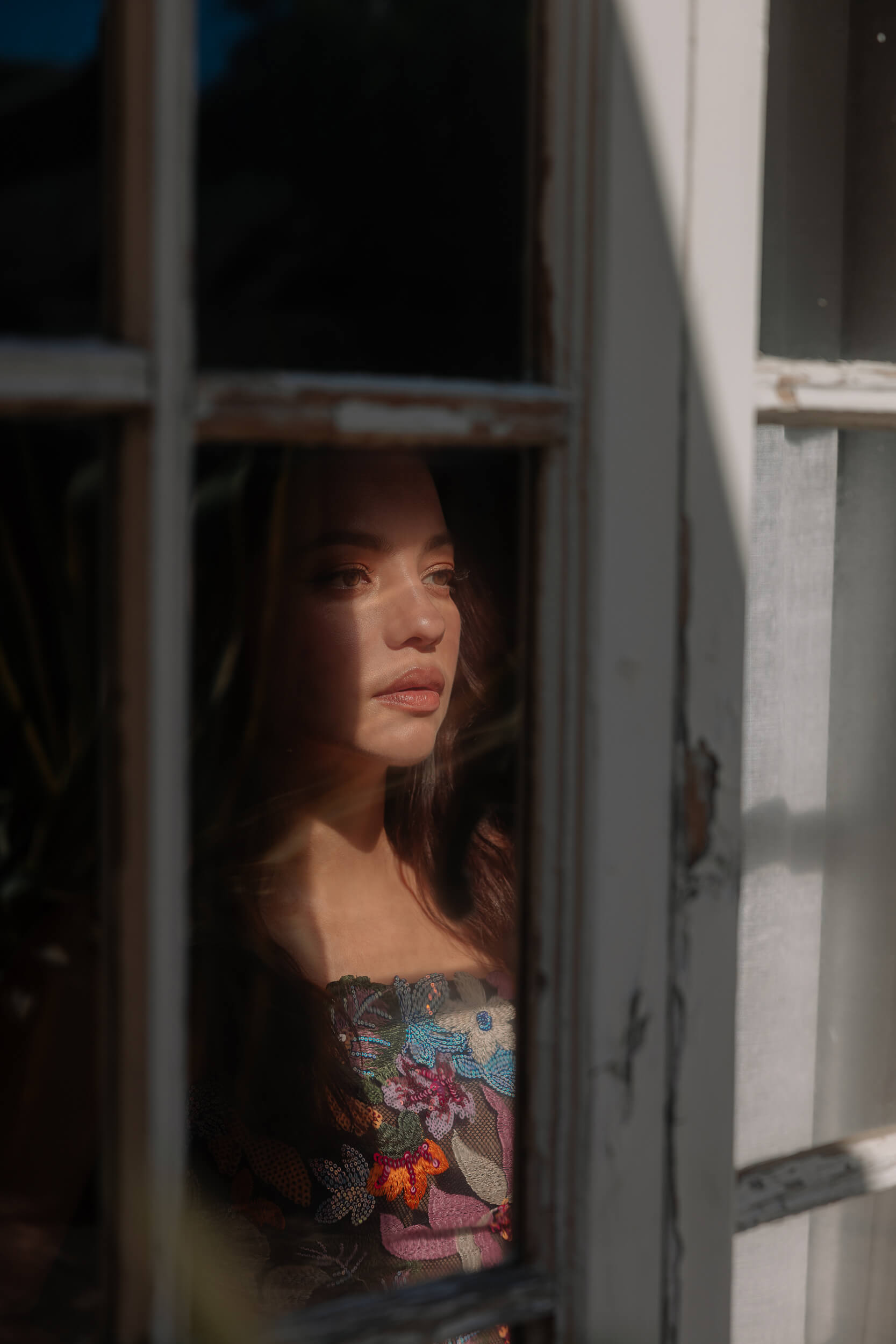
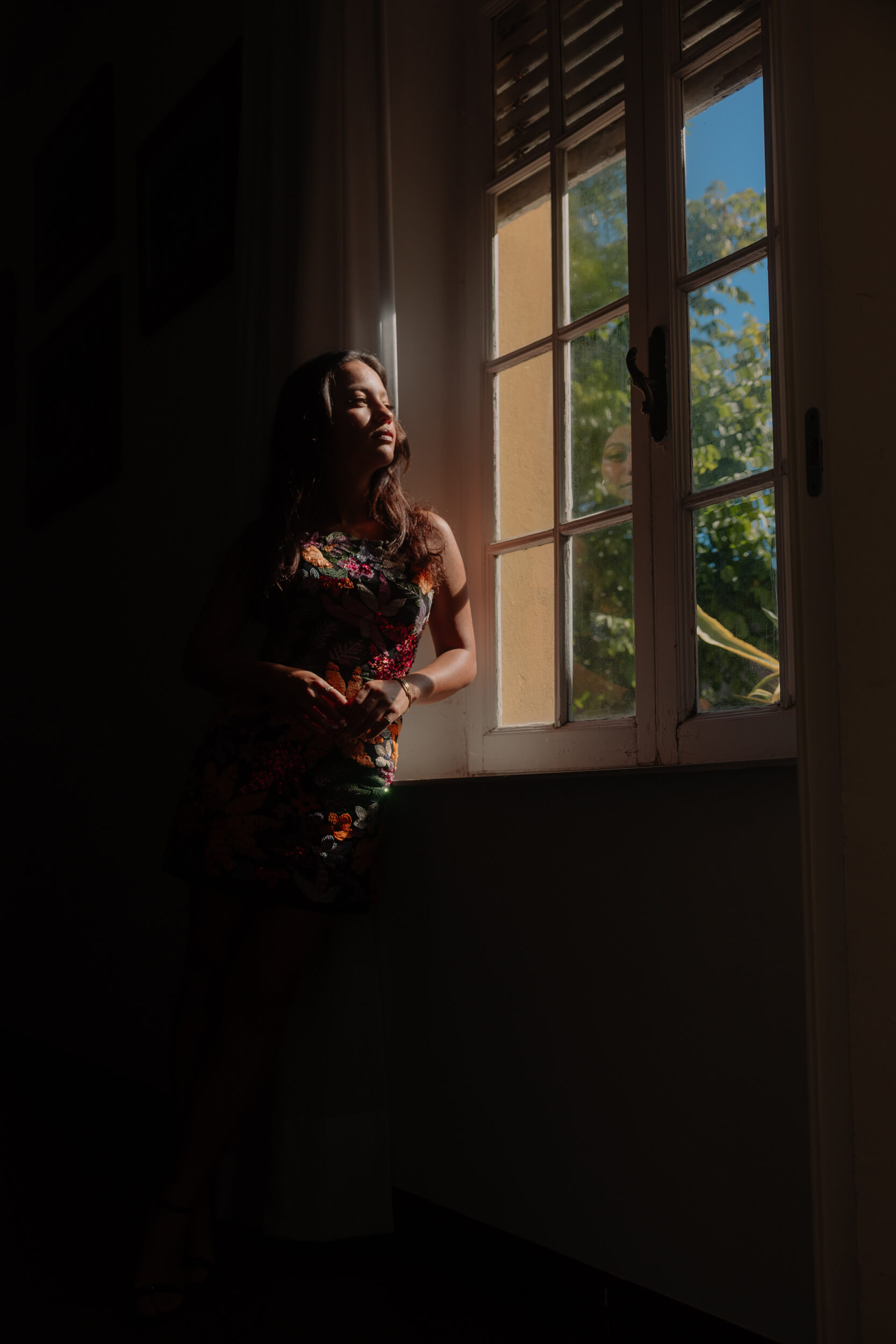
At the end we see her at peace, in front of the sea, where I think the sea is like a metaphor for freedom. What’s your place of freedom? What’s your happy place?
Well, it’s funny. I’m from Bogota, Colombia – we have no ocean here, but the ocean is kind of that place that represents freedom for me. Also, when I’m in Colombia and in Cartagena, with my husband and daughter, we always try to be close to the sea. We feel like that’s what makes you feel free and close to the reality of the earth, grounding you. I think that’s kind of the same with Adelaida. In that last shot in the movie, when she finally gets on that plane to be out of there and to find that new chapter, there’s that open ocean, like a new opportunity, a new life waiting for her. But if you think about it, what’s next? When she gets to Spain, she’s actually going to have to start all over again, you know, start a new life. And that’s heartbreaking when you’re “no one”, when you don’t know the language, when you don’t have friends, when you don’t have family and you have to start from zero. So, the ocean is a metaphor for how big, open and hopeful the need to start a life from zero again can be. It feels like a never-ending cycle, she’s going to go through a lot again.
That scene gives you hope, even though you know that’s not going to be easy and everything is going to probably suck for a while. But it still gives you hope, which I think is something that nobody can steal from us.
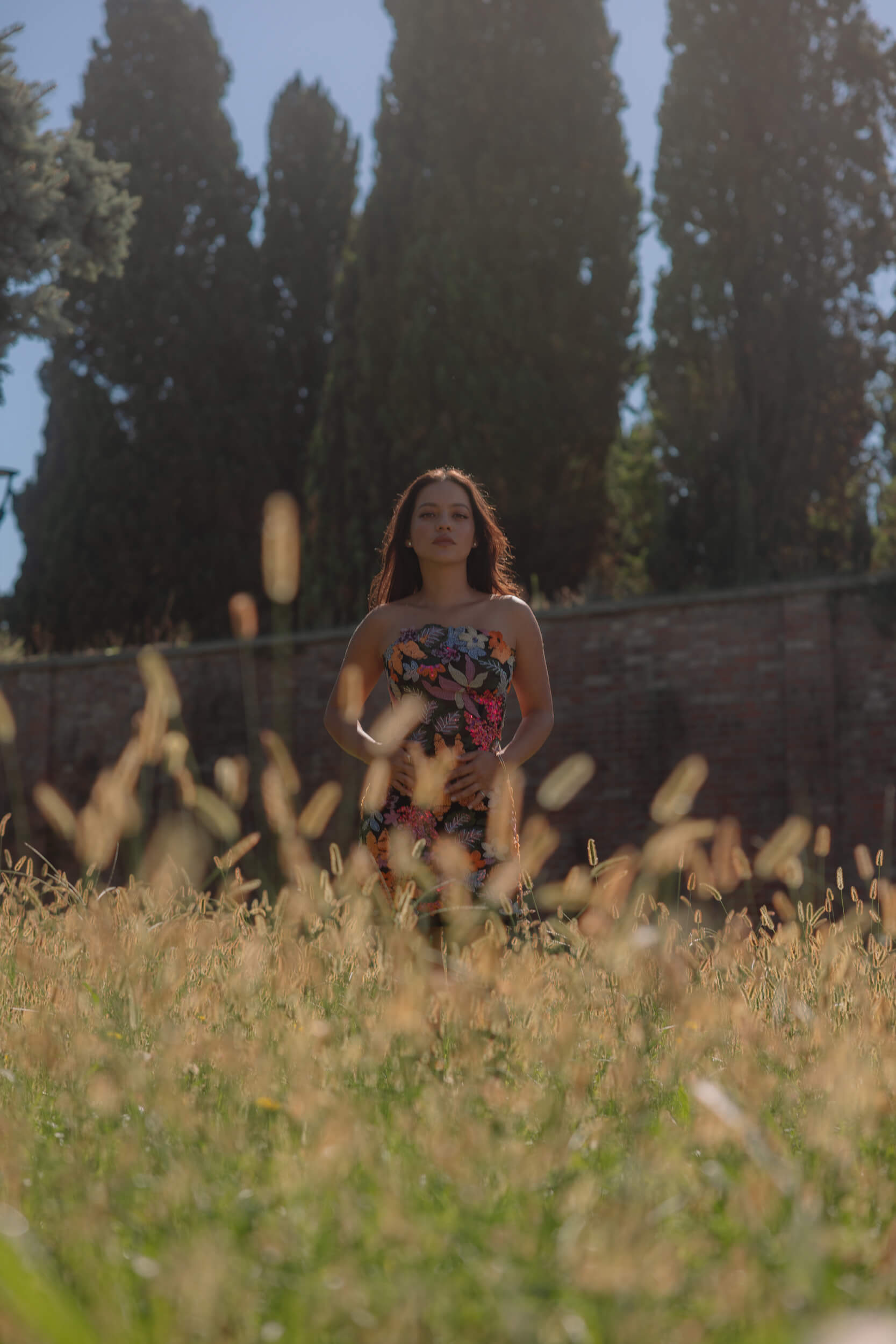
“And that’s heartbreaking when you’re ‘no one’, when you don’t know the language, when you don’t have friends, when you don’t have family and you have to start from zero.”
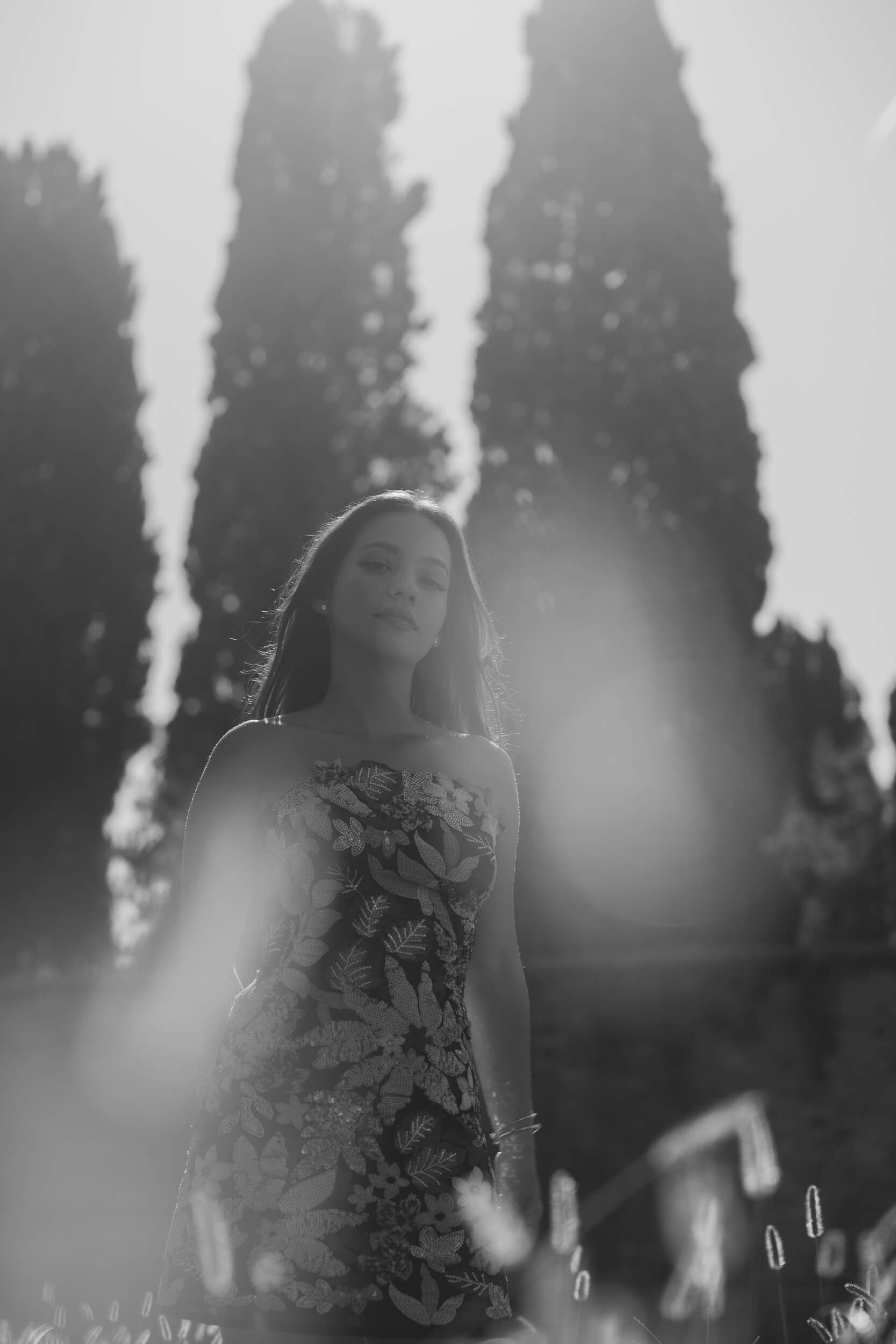
For Adelaida, books are really important, maybe the last thing she wants to keep with her, apart from her memories. What are the books that you would recommend to read? What are you reading right now?
Yeah, Adelaida wants her house back, you know, the physical place that she used to live in with her mother, but what she takes away from it with her books and photos is her memories. That’s what makes her remember her mother and her world before it collapsed.
The reason why I love going to Film festivals is not only to present movies, but also to watch them – I think films, books and photographs are memory.
I would totally recommend Karina’s book on which the film is based. She lives in Spain, and she has actually written lots of amazing books. Also, I’m reading a lot about loss: there is a Colombian author that I love – what she writes is between poetry and fiction, but also really personal. This one book I’m reading now is called “Lo que no tiene nombre” – it’s about losing her son in New York because he was suffering from schizophrenia, a really painful story. I’m also right now into Colombian authors like Laura Restrepo – she’s the author of a book called “Hot Sur”, about migration and this woman going to the States trying to find her American dream, but actually finding the worst hell in the world.
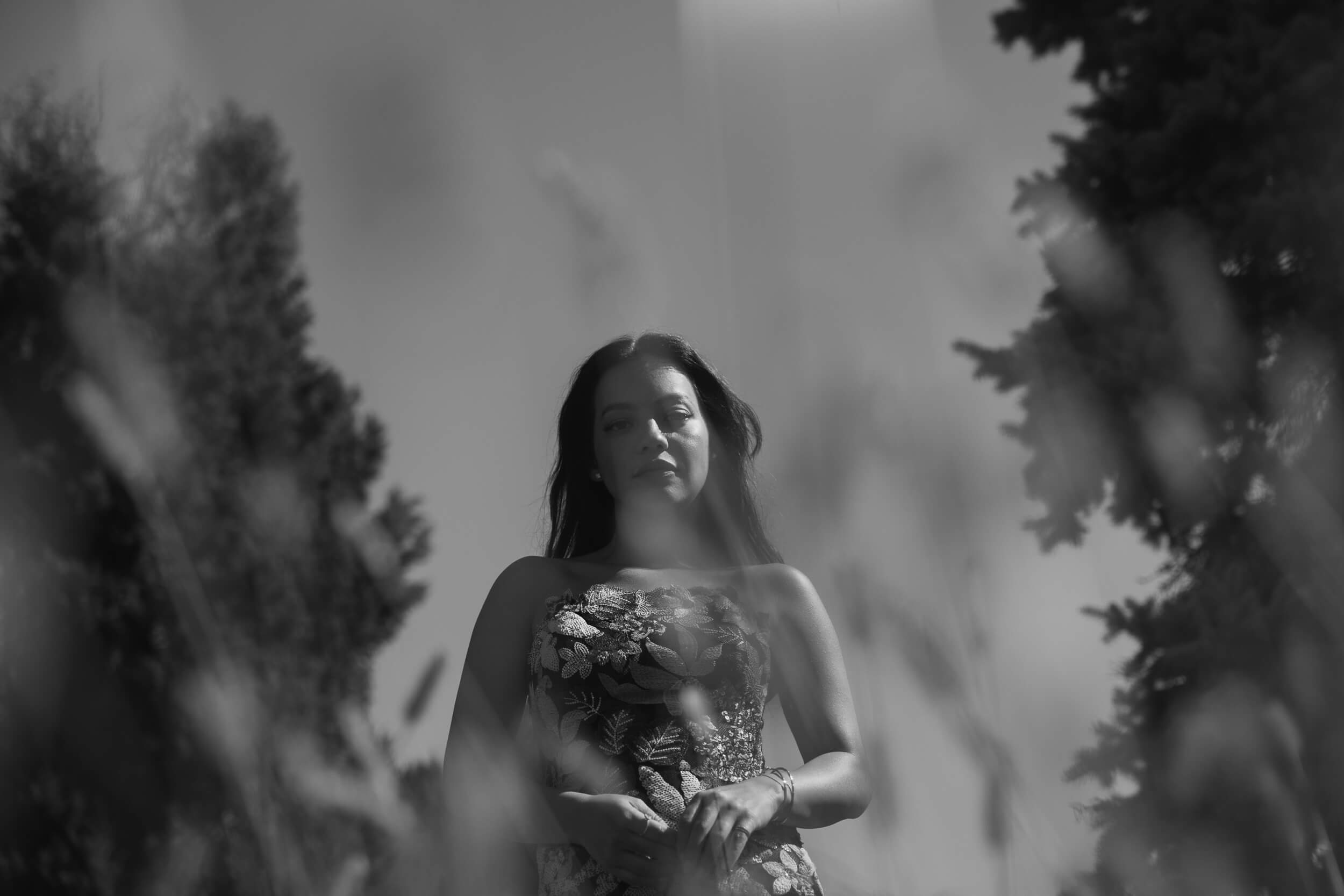
It really moves me when Adelaida changes her name, which was the name of her mother and the name she would have given to her daughter. It made me think of fears: what’s your biggest fear? And what makes you feel safe?
I think the idea of losing your country, your mother and your identity, which is what happens in the movie. It’s really scary because that’s like losing everything in your life. Also, illness – I really care about feeling well and healthy.
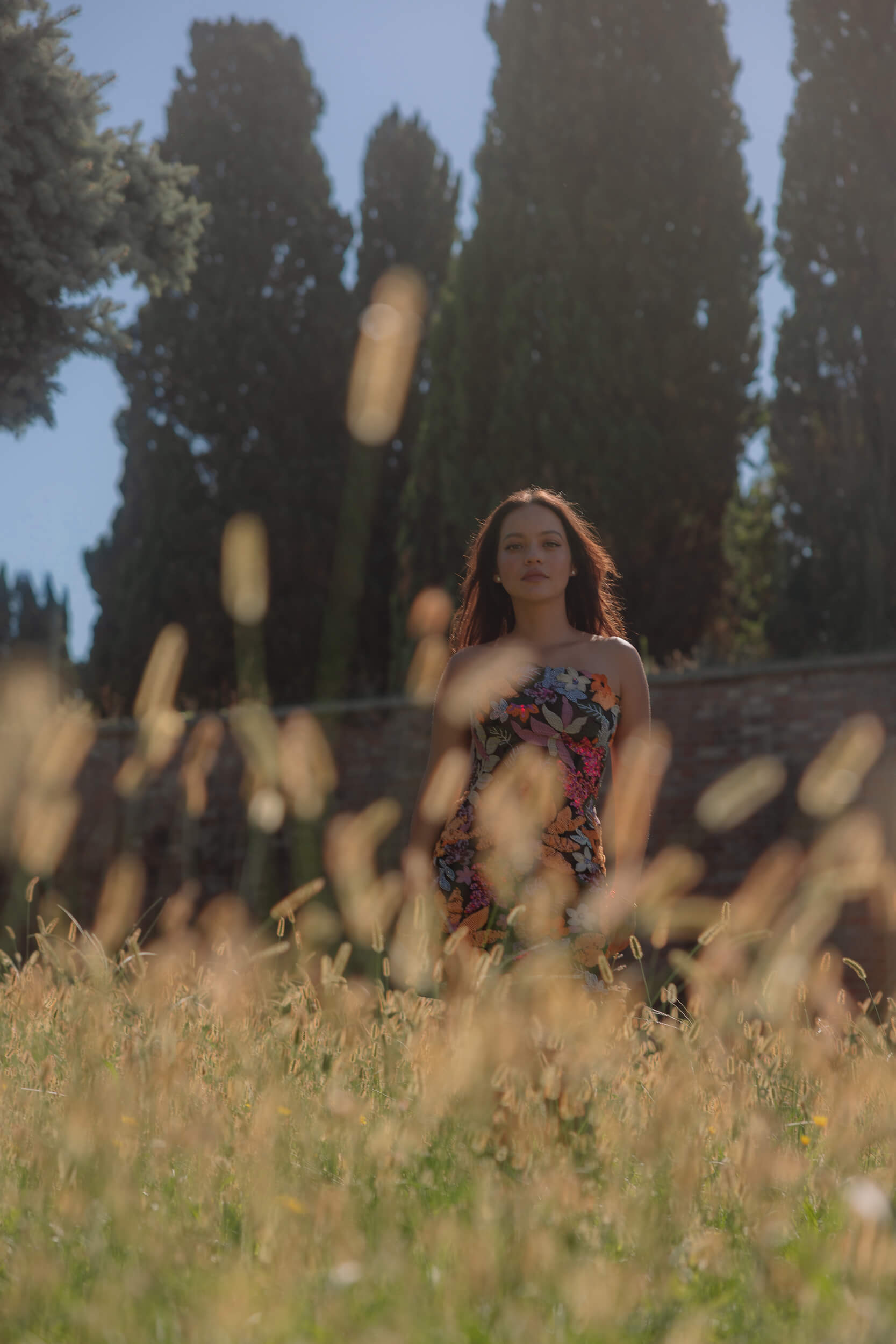
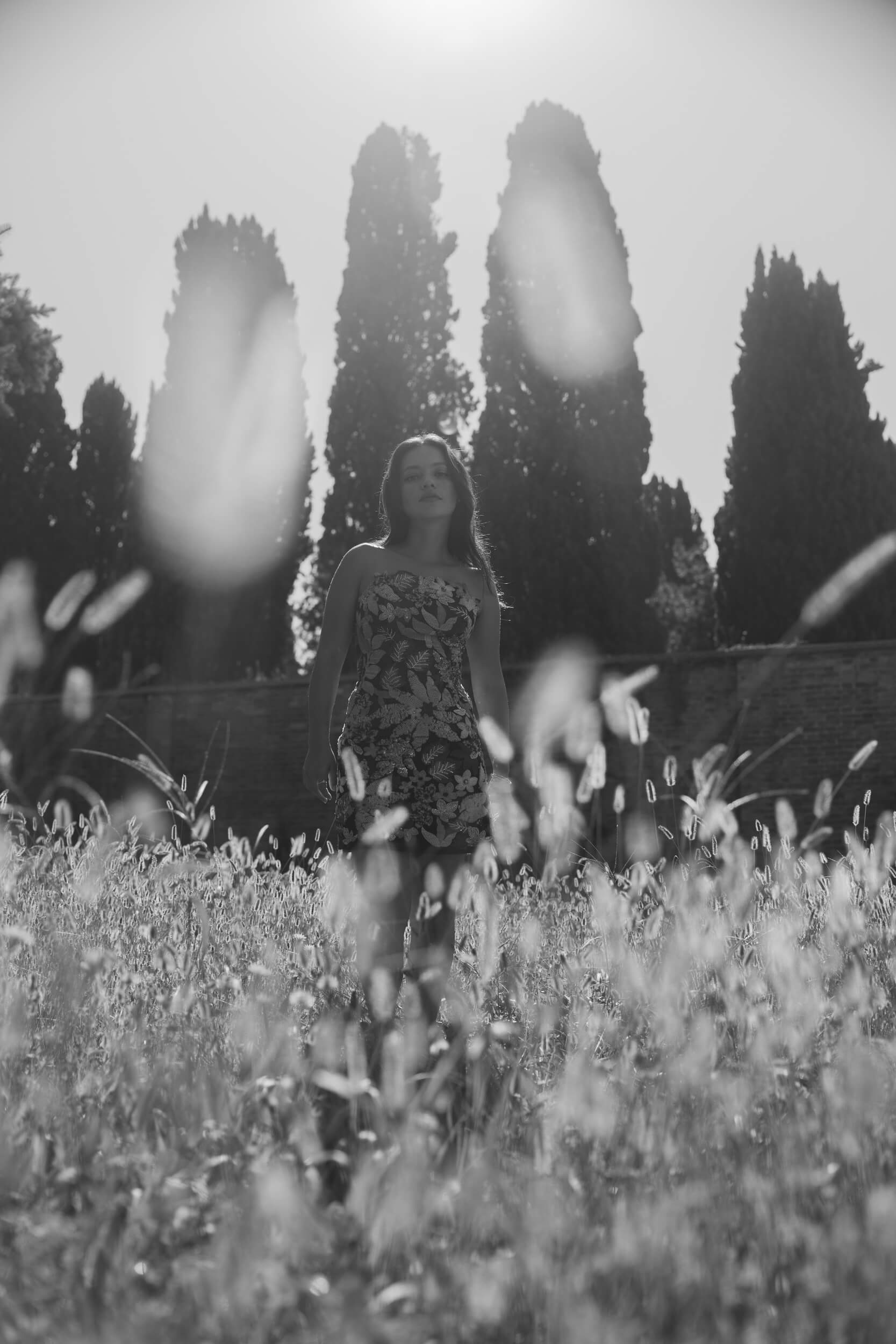
What is the last thing you discovered about yourself through your work, through your characters?
I think every character brings me something and I always try and find myself in the character. Also, it helps to wonder, “What would I do if I was in that situation?”. So, I think acting is a very personal craft – you have to put something that is truly yours there, that you can really resonate with. I always say it is like therapy to me because it makes me face real feelings. It is a real journey that we have in all of our characters.
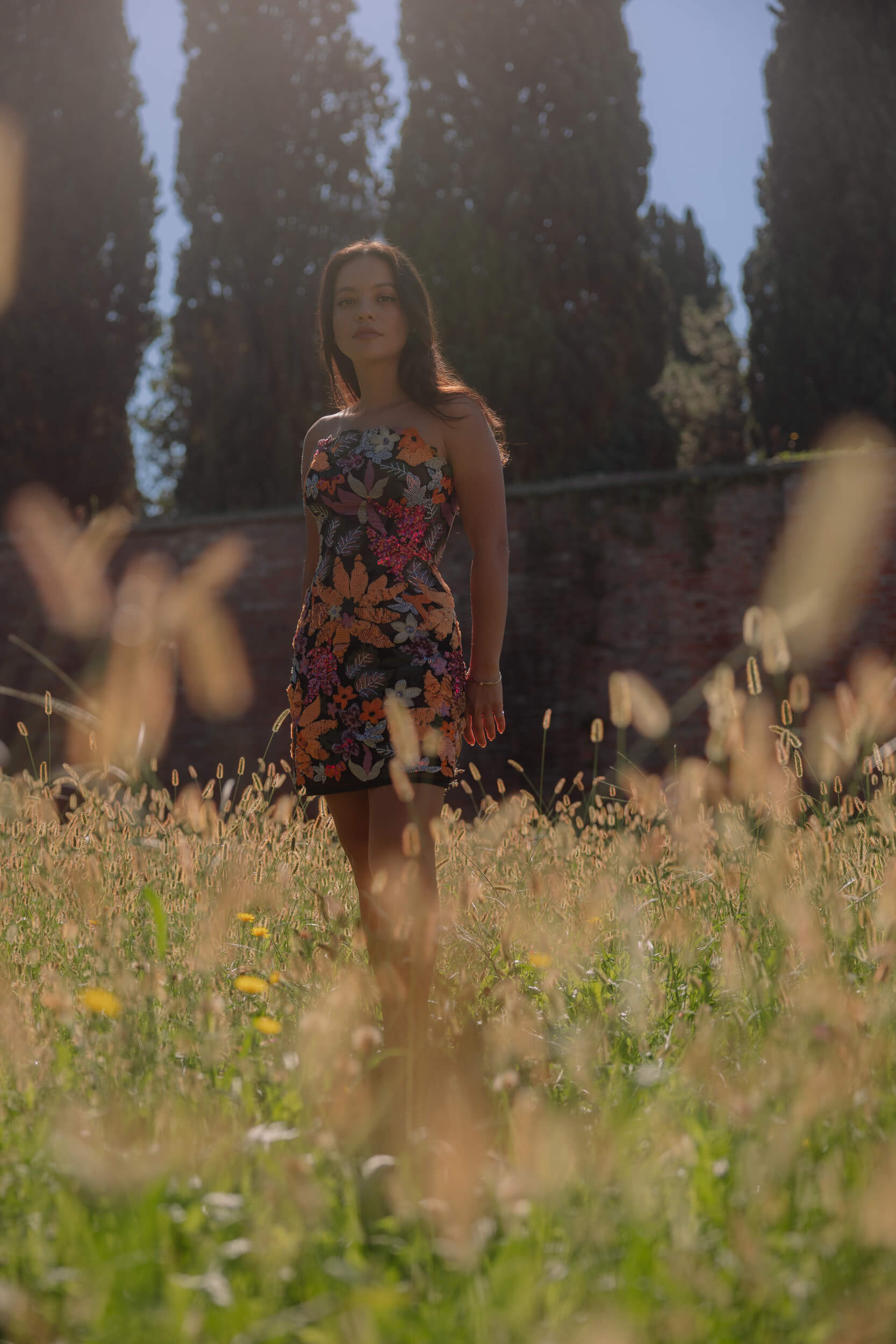
One last question: your greatest act of rebellion?
As of now, telling this kind of stories. I’ve been working in the States, I’ve done big franchise movies, so acting is my life – what I do for a living but also what I love doing. However, now that I get to play different roles, when I get to do this kind of movies telling realities that are hard and painful to tell, or uncomfortable for some governments or whatever, I think that’s my rebellion, my way of not necessarily do what I am meant to do but what I feel is important.
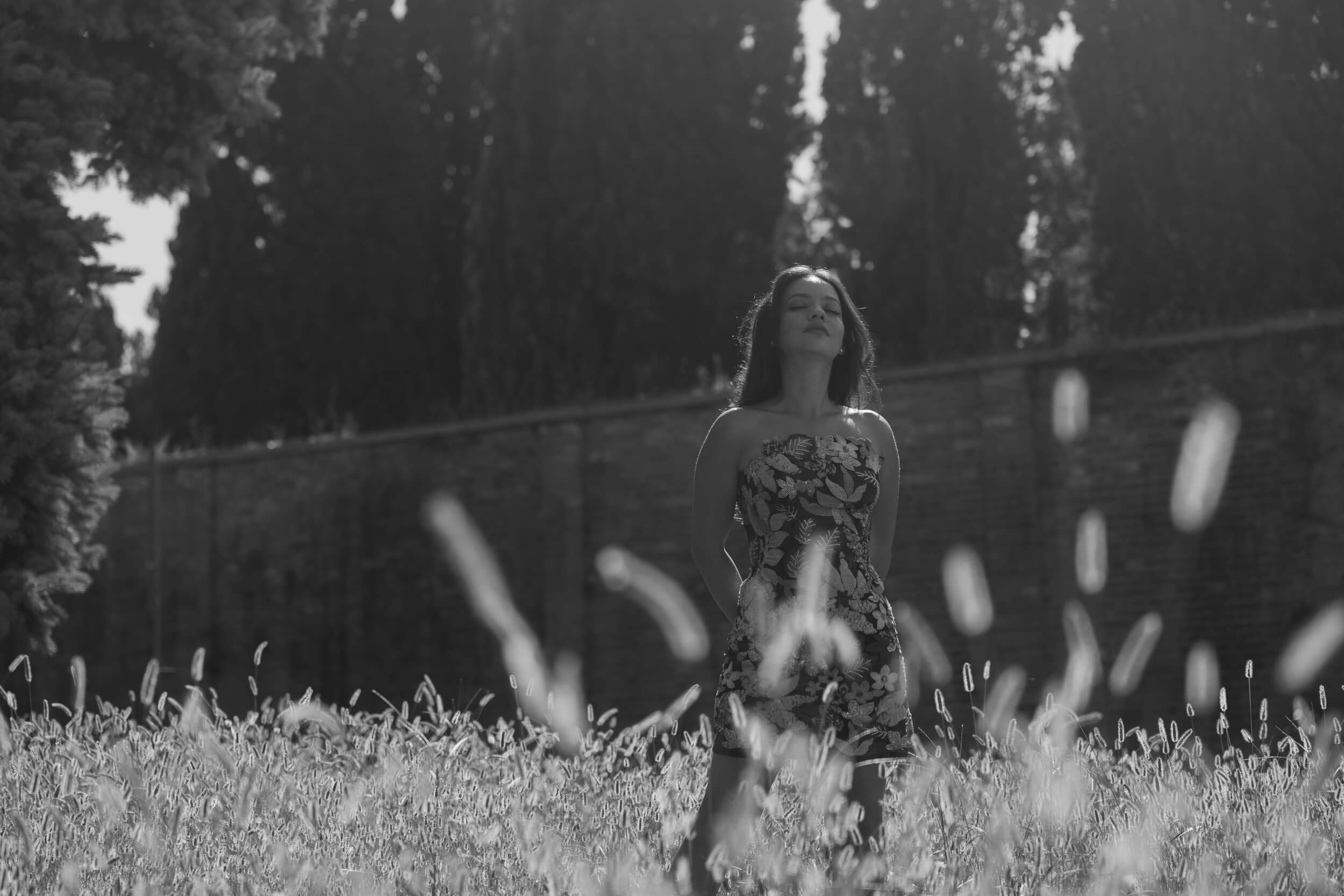
Photos by Johnny Carrano.
Location: Hotel Villa Mabapa.

